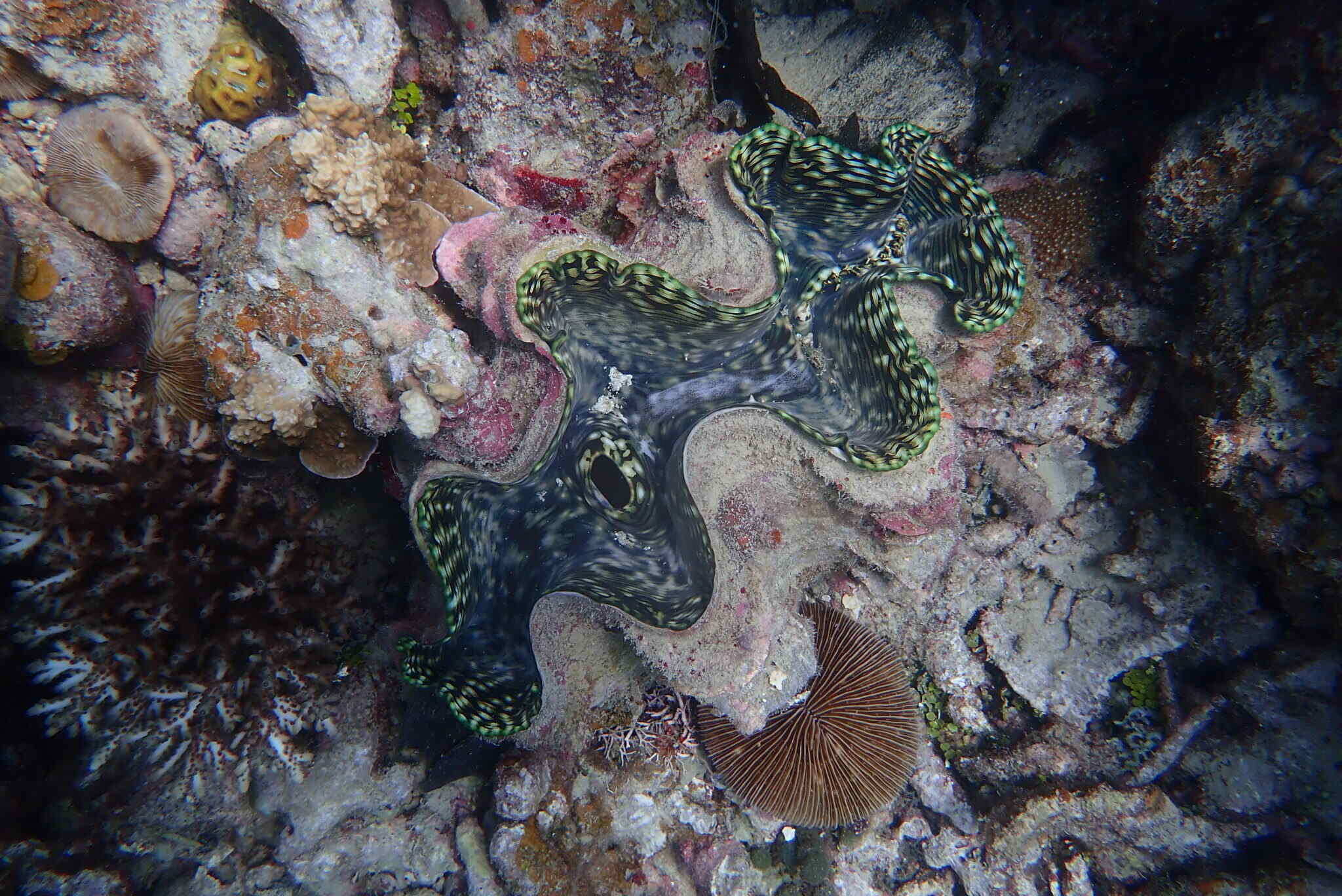
The benthic zone is a remarkable and intriguing part of our planet’s ecosystems. It refers to the lowest level of a body of water, including the seafloor, lakebed, or riverbed. This vast underwater world is home to a diverse range of organisms that have adapted to survive in extreme conditions. From deep-sea trenches to shallow coastal areas, the benthic zone plays a vital role in maintaining the balance of our oceans and freshwater bodies.
In this article, we will explore 10 fascinating facts about the benthic zone. We will delve into the depths of this mysterious realm, uncovering its unique features, incredible inhabitants, and the crucial role it plays in sustaining life on Earth. So, buckle up and get ready for an exciting journey into the captivating world of the benthic zone!
Key Takeaways:
- The benthic zone is a mysterious world at the bottom of bodies of water, filled with diverse organisms and unique geological features. It’s like an underwater jungle waiting to be explored!
- Scientists study the benthic zone to learn about past climate patterns and potential medical discoveries. It’s like a treasure trove of secrets that could help us understand our planet and find new medicines.
The Benthic Zone: The Mysterious Abyss
The benthic zone, also known as the bottom zone, is the lowest level of a body of water such as an ocean, lake, or river. It holds a world of wonder and mystery, teeming with life and unique geological features.
A Habitat for Countless Organisms
The benthic zone is home to an incredible diversity of organisms, ranging from tiny bacteria to massive deep-sea creatures. These organisms have adapted to survive in extreme conditions, such as high pressure, lack of sunlight, and low nutrient availability.
The Abyssal Plains: Flat and Endless
One fascinating feature of the benthic zone is the abyssal plains, vast stretches of flat and featureless seafloor. These plains cover a significant portion of the ocean floor and are made up of fine sediment, including clay, silt, and sand.
Hydrothermal Vents: Nature’s Underwater Geysers
Hydrothermal vents are found in the benthic zone and are among the most intriguing aspects of this underwater realm. These vents are formed by volcanic activity beneath the seafloor, releasing hot water rich in minerals. They support unique ecosystems filled with species that thrive in extreme conditions.
The Benthic Zone and Climate Research
Scientists study the benthic zone to gain insight into past climate patterns. By examining the sediment layers on the ocean floor, they can uncover valuable information about temperature changes, carbon dioxide levels, and the Earth’s overall climate history.
Benthic Fauna: Masters of Adaptation
The organisms that inhabit the benthic zone have developed remarkable adaptations to their environment. From bioluminescence to shockingly high pressure tolerances, these creatures have evolved to thrive in a world few can imagine.
Benthic Zone Destruction: Human Impact
Unfortunately, human activities pose a significant threat to the delicate balance of the benthic zone. Pollution, overfishing, and deep-sea mining can disrupt or destroy these unique ecosystems, causing irreparable damage to the delicate web of life that exists there.
Preserving the Benthic Zone: Conservation Efforts
Recognizing the importance of the benthic zone, numerous conservation organizations and researchers are actively working to protect these fragile ecosystems. Efforts include establishing marine protected areas, promoting sustainable fishing practices, and raising awareness about the value of preserving these vital habitats.
Unlocking Potential Medical Discoveries
The benthic zone holds untold potential for medical discoveries. Many organisms found in these depths produce unique and potent compounds that have shown promise in developing new medicines, including antibiotics and anti-cancer drugs.
Deep-Sea Exploration: Pushing the Boundaries
The exploration of the benthic zone continues to push the boundaries of human understanding. From manned submersibles to remotely operated vehicles (ROVs), scientists and explorers are venturing into the depths to uncover the secrets and wonders that lie beneath the surface.
In summary, the benthic zone presents a world of fascination and discovery. It is a crucial part of our planet’s ecosystem, playing a vital role in climate regulation and supporting a remarkable array of life. Protecting and understanding this unique environment is essential for the future of our planet.
Conclusion
In conclusion, the benthic zone is a captivating and mysterious realm that plays a vital role in the health of our oceans and the planet as a whole. With its unique features and diverse inhabitants, it offers a treasure trove of scientific discoveries and ecological insights. From the fascinating adaptations of benthic organisms to the complex food webs and nutrient cycling processes, there is so much to learn and explore in this submerged world.Understanding the benthic zone helps us to comprehend the interconnectedness of different marine ecosystems and the impact of human activities on these fragile environments. As we continue to study and protect these vital habitats, we can ensure a sustainable future for both the benthic zone and all the life that depends on it.So dive into the world of the benthic zone and discover its wonders. Whether you are a scientist, a nature enthusiast, or simply curious about the hidden depths of our oceans, the benthic zone is sure to leave you awe-inspired and amazed.
FAQs
1. What is the benthic zone?
The benthic zone refers to the lowest level of a body of water, including the sediment and the organisms that live on or in it.
2. What are some examples of benthic organisms?
Some examples of benthic organisms include sea stars, crabs, worms, and corals.
3. How deep is the benthic zone?
The depth of the benthic zone can vary depending on the body of water, but it typically extends from the shoreline to the deepest part of the ocean.
4. What role does the benthic zone play in the marine ecosystem?
The benthic zone plays a vital role in the marine ecosystem, as it is involved in nutrient cycling, sediment stabilization, and provides habitat for a wide range of organisms.
5. How do human activities impact the benthic zone?
Human activities such as pollution, overfishing, and habitat destruction can have detrimental effects on the benthic zone, leading to ecosystem imbalances and loss of biodiversity.
6. How do scientists study the benthic zone?
Scientists use various methods to study the benthic zone, including underwater vehicles, sediment sampling, and remote sensing technologies.
7. Are there any unique adaptations among benthic organisms?
Yes, benthic organisms have unique adaptations to survive in their environment, such as bioluminescence, camouflage, and specialized feeding structures.
8. Can the benthic zone be found in freshwater ecosystems?
Yes, the benthic zone exists in both marine and freshwater ecosystems, although the specific organisms and characteristics may differ between the two.
9. Are there any endangered species in the benthic zone?
Yes, several species that inhabit the benthic zone are endangered, including certain types of corals, sea turtles, and deep-sea fish.
10. Can recreational activities be enjoyed in the benthic zone?
Recreational activities such as scuba diving and snorkeling can provide unparalleled opportunities to explore the benthic zone and its wonders, but it is important to do so responsibly to minimize impacts on the ecosystem.
Was this page helpful?
Our commitment to delivering trustworthy and engaging content is at the heart of what we do. Each fact on our site is contributed by real users like you, bringing a wealth of diverse insights and information. To ensure the highest standards of accuracy and reliability, our dedicated editors meticulously review each submission. This process guarantees that the facts we share are not only fascinating but also credible. Trust in our commitment to quality and authenticity as you explore and learn with us.


